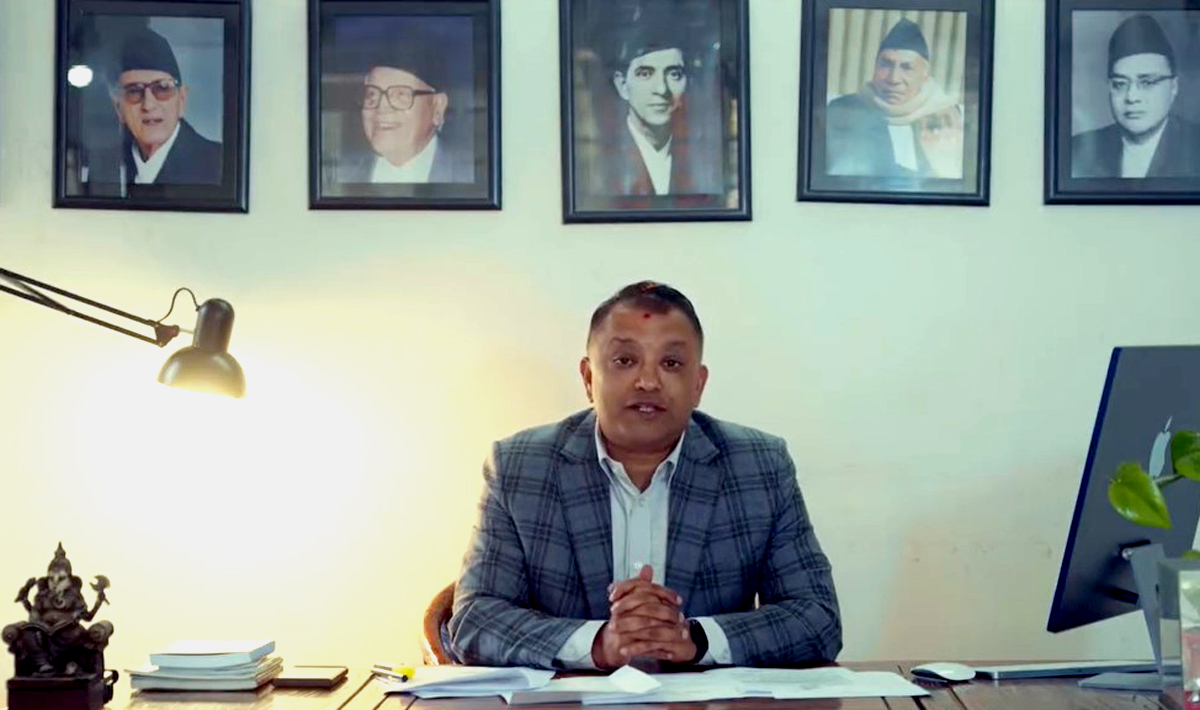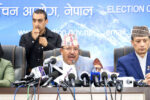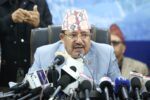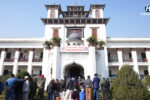KATHMANDU: Nepali Congress has embarked on a crucial mission to resolve longstanding active membership disputes as it prepares for its upcoming 15th General Convention.
The initiative is led by the party’s General Secretary, Gagan Kumar Thapa, who heads the Active Membership Management Committee, a body formed explicitly to streamline and oversee the membership renewal process across the party’s various working committees.
This effort is a significant step toward addressing recurring challenges in the party’s internal processes. Disputes over active membership have been a recurring issue since the 12th General Convention, leading to internal divisions and delays.
Such disputes typically stem from accusations of favoritism, fraudulent entries, and the exclusion of eligible members, tarnishing the democratic values the party represents. With the next convention looming, the current drive aims to ensure that these issues are resolved comprehensively, creating a transparent and inclusive membership base for the party.
The Active Membership Management Committee, which includes central members Sita Gurung, Yogendra Chaudhary, and Prakash Rasaili, began its work with a meeting on January 3.
Following the meeting, the committee issued directives to all subordinate working committees at the provincial, district, regional, municipal, and ward levels, urging them to adhere to a detailed timeline for completing the renewal process.
The committee’s primary objective is to ensure that every eligible member of the party has an active membership, enabling them to participate in the convention as representatives.
Active membership is a cornerstone of the Nepali Congress’s internal democracy. It grants members voting rights in the general convention, where crucial decisions, such as electing the central leadership, are made.
These representatives play a pivotal role in shaping the party’s direction by electing key leaders, including the party president, general secretaries, and central committee members. Therefore, ensuring the accuracy and integrity of the membership rolls is essential for the legitimacy of the upcoming convention.
The renewal process, outlined by General Secretary Thapa, involves several stages, each with strict deadlines.
Beginning with the submission of active membership forms at the district level, the process cascades down through the provincial assembly’s regional presidents, village or municipal committees, and ultimately to the ward working committees.
The wards are tasked with completing the bulk of the renewal process, including collecting membership fees of Rs 200 per member and verifying member details before submitting them to the higher committees. These submissions include comprehensive reports, membership details, and fees, which must be forwarded to the party’s central office by April 11.
As part of this initiative, the party has established a system to ensure accountability in the financial aspects of the process.
Each subordinate committee is allowed to retain Rs 10 per membership form for operational expenses, while Rs 150 per form, including Rs 10 allocated to the provincial working committee, must be sent to the central office.
The funds are deposited into the party’s account at the Rastriya Banijya Bank in Teku, and deposit vouchers must be submitted to the central office by the final deadline. This meticulous financial procedure reflects the party’s commitment to maintaining transparency and accountability.
Resolving the disputes that have historically plagued the membership process remains a significant challenge. Previous conventions have witnessed allegations of manipulation and exclusion, resulting in dissatisfaction among members and raising questions about the party’s internal governance.
By implementing a detailed timetable and clear guidelines, the Active Membership Management Committee hopes to address these issues effectively. The committee has emphasized the importance of strict adherence to the rules at every level of the party structure to prevent irregularities and ensure a fair process.
The stakes are high as the 15th General Convention draws near. The event will serve as a platform for electing the party’s new leadership, shaping its strategy, and reinforcing its position as a democratic institution.
The current party president, Sher Bahadur Deuba, holds the authority to extend the convention deadline by one year, but unless he exercises this option, the event must take place within the next month. Successful completion of the active membership renewal process is, therefore, critical to the convention’s success and legitimacy.
Despite the party’s best efforts, the scale and complexity of the renewal process present significant logistical challenges. The task involves coordinating thousands of members across the country, with delays or errors at any level potentially jeopardizing the entire effort.
Additionally, the party must remain vigilant against grievances from members who feel excluded or marginalized during the renewal drive. These challenges underscore the importance of effective communication and robust oversight at every stage of the process.
Looking forward, the active membership renewal initiative represents a critical juncture for the Nepali Congress. By addressing past grievances and ensuring a transparent process, the party has an opportunity to strengthen its internal democracy and restore trust among its members.
The leadership of General Secretary Thapa and the Active Membership Management Committee will be instrumental in navigating these challenges and ensuring a fair and inclusive general convention.
As the convention approaches, the Nepali Congress faces a defining moment in its history. The successful renewal of active memberships will not only pave the way for a smooth and democratic convention but also set a precedent for future organizational practices.
This initiative reflects the party’s commitment to upholding its democratic ideals and reinforcing its position as a leading force in Nepali politics.









Comment